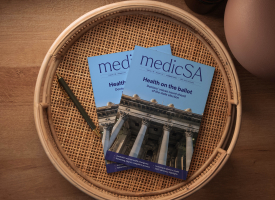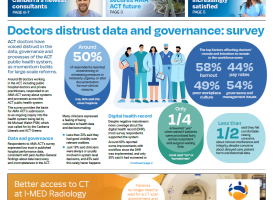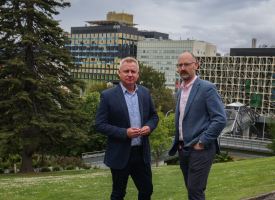Closing GP assist poses risks for patient care
The AMA is alarmed at the decision by the current provider to stop GP Assist at the end of this month.

Our members are deeply concerned this will risk leaving rural hospitals, aged care facilities, and vulnerable patients without critical after-hours local medical support — this isn’t just a funding issue, it’s a patient safety issue.
GP Assist is a locally embedded service, built by Tasmanians for Tasmanians — replacing it with a generic national call centre model won’t deliver the same continuity or quality of care.
GP Assist offers something 1800 MEDICARE cannot — a direct link to on-call Tasmanian general practitioners, who understand our health system, our geography, and our patients.
While the federal 1800 MEDICARE service may have merit in some contexts, it is not fit for purpose in Tasmania’s tightly integrated, regionally stretched system — and it will not safely fill the gaps left by GP Assist.
Replacing GP Assist with an untested model will invariably put pressure on already overstretched emergency departments, burns out rural doctors, and leaves aged care homes dangerously unsupported overnight.
We’re seeing announcements left, right and centre of new State-funded GP clinics with no consultation and no staff to run them — meanwhile, a proven, effective, fully staffed service like GP Assist is being abandoned. This is the wrong way to invest taxpayer money.
GP Assist is not just a phone line — it’s a critical clinical safety net, trusted by aged care homes, rural hospitals, and GPs. Ending it creates a dangerous vacuum in after-hours care.
We urge the federal government to provide immediate support to keep GP Assist operating through a new operator and work with clinicians, Primary Health Tasmania, and the GP Assist team to deliver a tailored and sustainable Tasmanian solution, rather than a one-size-won’t-fit-all model.>>>ENDS



